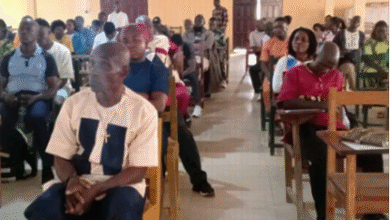Getting the WASSCE story right

By Chris Tokpah, Ph.D.
Last year, I urged clearer reporting of Liberia’s West African Senior School Certificate Examination (WASSCE) results (https://thenewdawnliberia.com/opinion-waec-liberia-should-stop-deceiving-the-liberian-people/). The request was simple. Tell the public how many candidates passed at least five subjects, including English and Mathematics. This year, the West African Examinations Council (WAEC), working with the Ministry of Education, did exactly that. That is real progress, and it deserves public praise.
During the rollout, many people heard that only 822 students passed. That is not what the data show. The figure of 822 refers to candidates who passed at least five subjects, including English and Mathematics, with credit. The number who passed five subjects, including English and Mathematics, with any grade is much higher at 28,576. Two different measures were discussed, and they were mixed in public conversation.
There is a simple fix that protects clarity and preserves confidence.
- Share the stage with a statistician. Let the Head of National Office set the context, speak to integrity measures, and outline the next steps. Ask a trained statistician to walk through the technical slide, define key terms, and take questions on the numbers. This is standard practice in many settings. It does not reduce the authority of the head. It ensures precision when the public is listening most closely.
- Release a one-page “Results at a Glance” at the start of the briefing. Use plain language and the exact definitions used by WAEC. Include the headline totals for candidates, the number who passed five subjects including English and Mathematics, and the subset who did so with credit. Post the sheet on the WAEC and Ministry websites and social pages at the same time as the announcement.
- Add a short glossary. Define pass, credit, with English and Mathematics, with any grade, and withhold. A few clear lines can prevent a flood of rumors.
- Publish county and school type tables as soon as they are available. Because the first announcement uses provisional results, the disaggregation should follow standard verification and quality checks. Once cleared, post a clean table or CSV so the public can see patterns and policymakers can act.
This year’s improvement shows that feedback is being heard. Now, let us lock in a results protocol that pairs leadership with a technical voice so the message is accurate, and the public conversation is constructive. Better data, clearly explained, helps schools improve, guides policy, and gives families a true picture of performance.
About the Author
Dr. Chris Tokpah is the Associate Vice President for Institutional Effectiveness at Delaware County Community College in Pennsylvania. He holds a Ph.D. in Program Evaluation and Measurement, an MBA with an emphasis in Management Information Systems, and a B.Sc. in Mathematics.
Dr. Tokpah also serves as an Adjunct Professor of Research Methods and Statistics in the Ph.D. program at Delaware Valley University. He is an independent consultant who supervised baseline studies and evaluations sponsored by the World Bank, IDA, Geneva Global, USAID, and the African Development Bank.
He is a co-owner of the Center for Research, Evaluation, and Policy (CENREP). This Liberian consulting firm specializes in strategic planning, monitoring, evaluation, social science research, and training services. His email address is ctokpah@cenrepliberia.org.


















